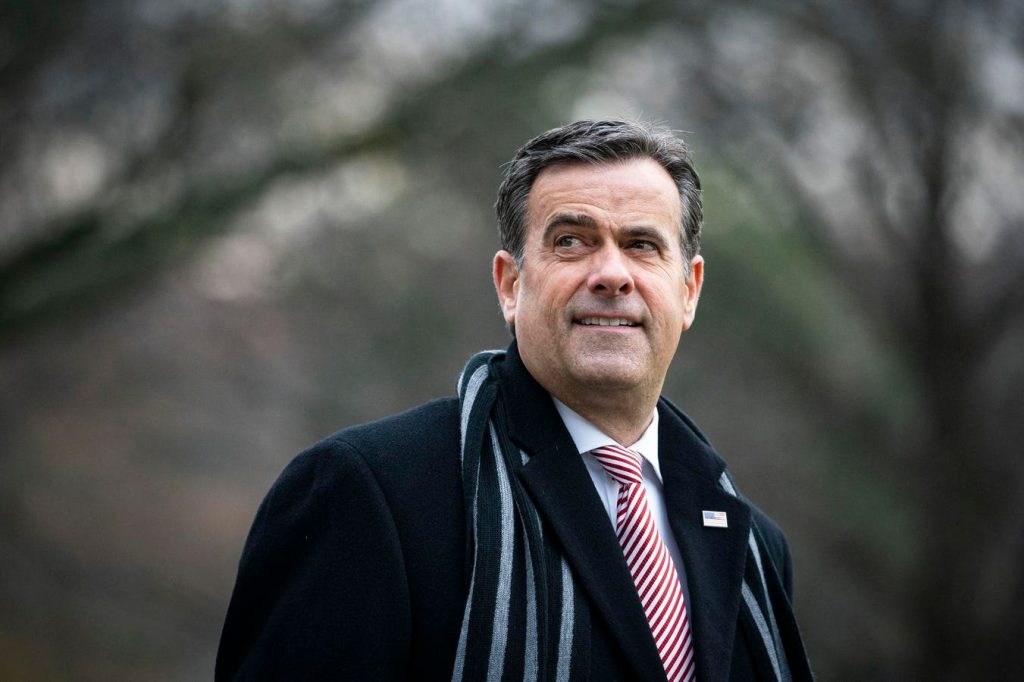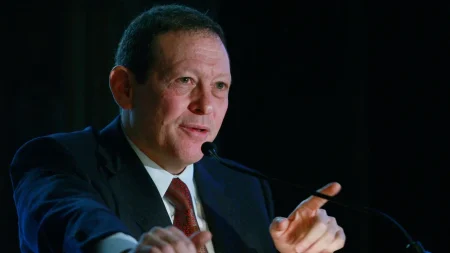Donald Trump’s selection for CIA director, John Ratcliffe, has garnered attention not only for his political ties but also for his financial maneuvers after leaving Congress. Ratcliffe, who is 59 years old and does not share the same wealth as Trump, has been scrutinized for how he redirected over $403,000 from his congressional campaign funds into his own pocket. An analysis by Forbes reveals a series of questionable strategies that allowed Ratcliffe to capitalize on campaign finances, drawing attention to potential ethical violations in the management of political donations.
One of Ratcliffe’s significant financial moves involved his wife, Michele, whom he appointed as the treasurer of his congressional campaign following his departure from Congress. Although the campaign was relatively inactive, processing an average of nine transactions per month, Michele Ratcliffe reportedly earned $44,000 for her services. She has defended this arrangement, asserting that hiring a paid treasurer is a requirement under Federal Election Commission (FEC) rules. However, critics argue that campaign treasurers can often serve without compensation, which raises questions about the necessity and legitimacy of this payment.
Further complicating matters, Ratcliffe appears to have misused campaign funds to benefit his consulting business. Federal regulations prohibit the use of campaign money for personal expenses, yet an $11,500 payment was made to an Alabama-based firm, Telegraph Creative, for website design services. Investigations have indicated that these funds were not used for a campaign-related website, but rather for Ratcliffe’s personal consulting website. This raises concerns about whether he complied with FEC guidelines regarding allowable campaign expenditures, as the evidence suggests that the funds were diverted for private benefit rather than campaign activities.
Additionally, Ratcliffe capitalized on a recent Supreme Court ruling that eased restrictions on candidates repaying loans made to their campaigns. After leaving Congress, Ratcliffe took advantage of this ruling to pay himself back $225,000 using campaign funds, following the legality established in the case FEC v. Ted Cruz for Senate. This repayment reduced outstanding loans he had previously made to his own campaign, highlighting the opportunistic nature of his financial actions after his congressional tenure.
The remaining funds from his campaign, totaling approximately $122,000, were primarily allocated to other political committees, compliance services, and various charitable contributions, including the Tunnel to Towers Foundation. Despite the controversial transactions, Michelle Ratcliffe contended that all of their financial activities have been transparent and compliant, insisting that the FEC has approved all reports without raising outstanding issues. This statement reflects the couple’s continued defense against accusations of impropriety.
As scrutiny mounts regarding John Ratcliffe’s financial practices, the examination of these campaign fund maneuvers underscores broader concerns about transparency and ethics in political financing. While Ratcliffe and his supporters assert that all actions comply with regulatory frameworks, the public and watchdog groups are likely to demand further accountability, particularly given the nuanced legal interpretations that have allowed individuals like Ratcliffe to benefit personally from political donations. The ongoing analysis of campaign finance practices highlights the need for stricter regulations and greater oversight to mitigate potential abuses in political funding mechanisms.











